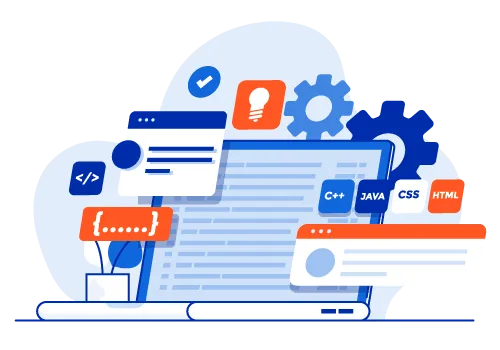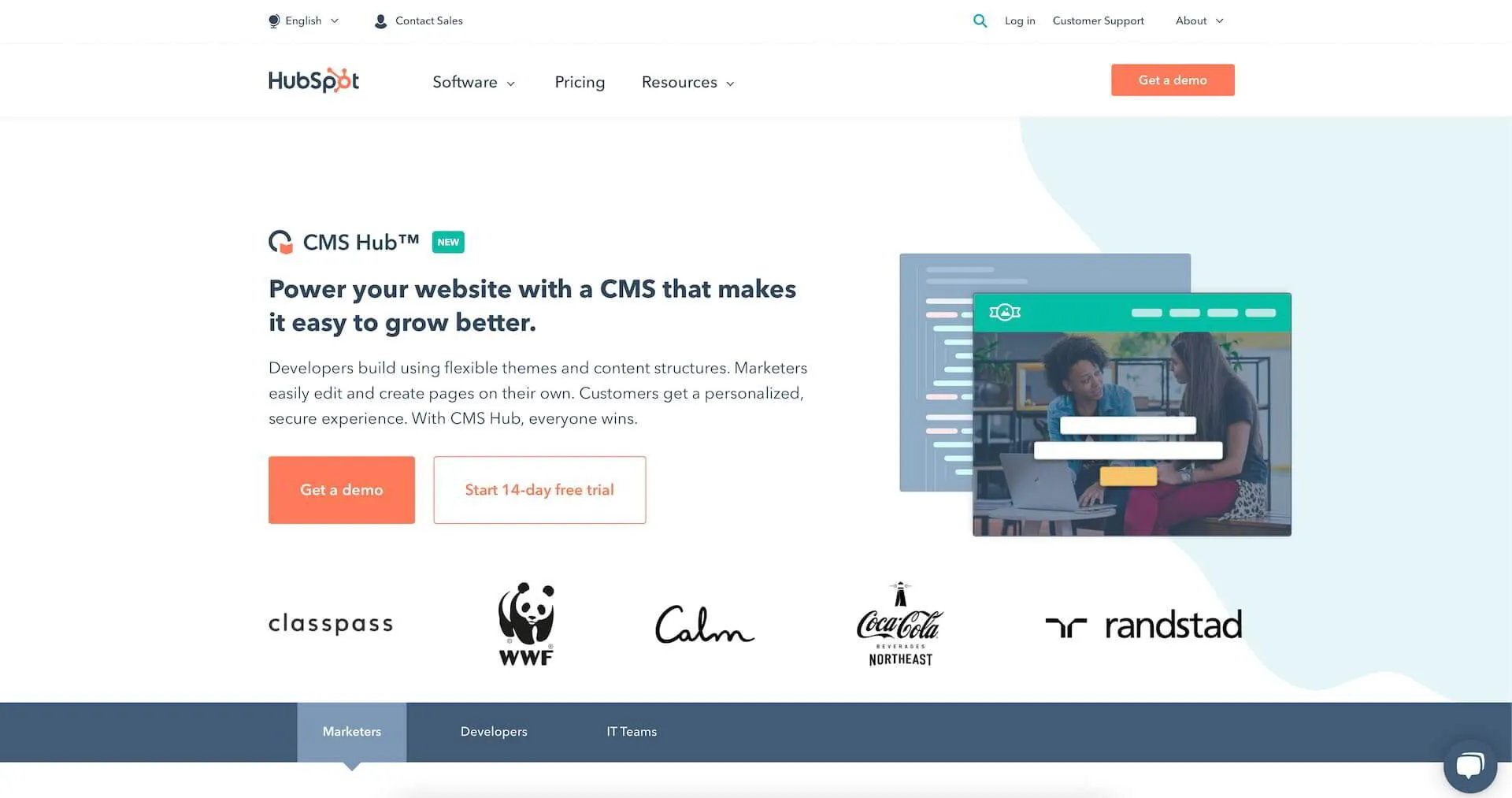THE SCG CONTENT MARKETING GUIDE
Chapter 01: What Is Content Marketing?
Content marketing is a strategic marketing technique that depends on the creation and distribution of high-quality, relevant, and timely content.
Chapter Overview
Content marketing grew more popular with the rise of smartphones and more internet access. As more and more people become connected, the wealth of knowledge expanded, and now content is everywhere, waiting to be consumed by those who seek it.
There are new channels, trends, tactics, and strategies emerging every day, but the cornerstone of any content marketing plan is still your audience.
When you create the best experience for your audience through content, it’s almost guaranteed that your audience will come back again and again.
However, the future of content marketing is built upon shareable, consumable bites of information.
Rather than throwing SEO content down on a page, businesses have to get serious about the way that they present and share content across a vast array of channels.
Without a content marketing strategy, many businesses will be left behind as audiences seek out more authentic and helpful experiences from competitors who create interactive content for their target markets to consume.
What Is Content Marketing?
Content marketing is a strategic marketing technique that depends on the creation and distribution of high-quality, relevant, and timely content.
Not only must your content be unique for this strategy to be successful, but marketers must conduct research on their audiences to ensure that it’s beneficial for target markets.
Otherwise, the content won’t have any engagement.
HubSpot conducted a survey that revealed those who blog get 7 times more leads than a website without a blog.
What would it be like to get 7 times the leads you’re currently generating?
While there are all kinds of tactics to make a content strategy successful, one thing is certain:
Content marketing is crucial for any business that wants to sell its brand and products to online customers.
In fact, many audiences won’t even pay attention to a brand that doesn’t provide trustworthy, authentic content.
What Can Content Marketing Do for Your Business?
Did you know that research found 86% of online purchases are attributed to great customer experience?
That’s not all.
Buyers are willing to pay more if they received a personalized shopping experience. You can create these experiences using a targeted content strategy.
Your brand can stand out online in a sea of competitors, attracting your target audience’s attention and encouraging engagement, but you’ll need the right tools to support your strategy.
The essential fact is that content must be able to attract target audiences, driving actions through persuasive writing, and creative visual experiences.
When done correctly, businesses can use a comprehensive content marketing strategy to:
- Increase sales
- Save on costs
- Create loyal customers
- Generate leads
- Supports your social media content
- Rank up in search engines via SEO
- Improve online reputation
So why aren’t all businesses going after content marketing right now?
One major factor holds many businesses back from taking advantage of this cost-saving marketing strategy:
- Who is the person to research, create, and optimize all of this content?
It’s a question that can stop a content marketing strategy in its tracks because it takes time to build this content, especially if you don’t have the stakeholder on staff to help.
However, brainstorming this strategy and developing a content plan is actually a fun way to improve several aspects of your business.
Once you have the strategy, there are ways to build content over time, little by little, or you may want to invest in a professional service.
Whichever way you choose to go about your strategy, you’ll be helping the future of your business tenfold.
Pros and Cons of Content Marketing
The best content marketing strategies focus on an omnichannel experience, tying together the company blog, social media channels, and email campaigns to present an authentic brand that consumers want to engage with.
Pros of Content Marketing
- It’s a free and organic way to market your business.
- The basics are simple: publish content your audience wants to see and build traffic.
- Build authority on a variety of topics and increase your brand awareness.
- Content marketing leads to higher sales growth, especially for inbound sales.
- More engagement and sales from social media.
- Create content that lasts forever and builds your SEO, helping your site rank up in search engines.
- Support several company departments, like sales and customer service.
- Target the right audiences and increase your brand’s reach.
Cons of Content Marketing
- Successful strategies require planning and time commitments.
- The high learning curve for some tactics (we’ll show the easy way!)
- Requires a diverse set of skills for content creation, especially for design and video
- You may need to outsource some aspects of content marketing to be more successful.
- It’s highly competitive in certain markets, requiring higher-quality content or paid advertising to reach audiences.
Let’s figure this out together.
We’ve been creating content marketing strategies for years. With our method, you can achieve greater results in less time.
What’s the Secret to Content Marketing?
We were going to wait until later to reveal the number one secret of all successful content marketing strategies, but it’s essential that you remember this throughout your content marketing plan.
The secret to any successful content marketing strategy is how you build and nurture customer relationships.
When you create and publish content that focuses on helping your target audience, you don’t try to sell. Instead, your content answers a question, solves a problem, or opens up discussion on a new idea.
The focus of any content marketing creative should be authenticity and value for your audience. When you combine this with an engagement strategy, you create more loyal customers who want to advocate for your brand.
So what is content marketing essentially based on?
Most people think content marketing is just having a blog, but due to the explosive growth of social media and video, new strategies need to expand beyond just having a blog and publishing posts related to your keywords.
If you don’t think it’s worth it, let the numbers show you:
- Content marketing gets 3 times the amount of leads per marketing dollar spent. (Content Marketing Institute)
- 61% of online consumers in the US made a purchase after reading a blog.
- Content marketing also has 6 times higher conversion rates than traditional methods.
There are also many supplemental benefits of incorporating a content strategy, especially when combined with SEO.
Websites with a blog that posts content every day have over 430% more indexed pages than sites that don’t have a blog.
It’s Not Too Late to Start a Masterful Content Strategy
In fact, 70% of marketers actively invest in content marketing strategies.
Now is the best time to get into content marketing.
Here are a few of the perks that come from implementing a content marketing strategy:
- Higher web traffic
- More engagement
- Increasing sales
The future of content marketing is headed towards customized content for individual audiences, as more and more tools become available to answer specific questions for customers conducting research.
You may have already notice that customers frequent your social media pages looking for answers and leaving comments wondering about products.
What if you had specific links to share on your website that would answer these important questions?
This is just one part of a successful content strategy.
Now you are getting people to visit your links in real-time and find answers, thus motivating them to make a purchase or share content that’s valuable to their peers.
There are currently 2.6 billion active Facebook users. Even just .01% of this audience could bring you, 260,000 visitors.
Over 66% of adults in the US say that they are Facebook users, which means content is a huge opportunity when shared at the right time with these audiences.
Content Marketing is a Low-Budget, Organic Strategy That Works
Without a content marketing strategy, you could be missing out on organic traffic and sales that require no marketing budget to capture.
Since blogs and social media pages are owned media, you can publish to your heart’s content and get free advertising.
In addition, content marketing goes hand-in-hand with your SEO strategy.
As you publish unique content, you can partner up with keyword research to make it easier than ever to find your content in search engines.
While higher traffic and revenue are two main reasons to develop a content marketing strategy, there are other advantages to consider.
Who Should Use Content Marketing?
Simply put, all businesses today need content marketing.
It’s a long-term strategy that pays off more than any other marketing strategy when done correctly.
Content marketing is used to develop the perfect customer experience. This reflects how your target audience wants to be treated.
When you understand your audience’s interests and feelings towards your brand, you build the exact content that they want to engage with.
Your business needs content marketing if you meet any of these statements:
- My business has a Facebook page but hardly any followers or shares. How do I get more followers and engagement?
- I have an online store, but my traffic is down. How can I build more awareness?
- I’ve got some sales from new customers, but they don’t leave good reviews or return to buy again. How can I build more customer loyalty?
- I have a company blog but no one reads it. How can I get more traffic?
- My new brand just launched. I don’t have any customers, followers, or traffic. Where and what content should I market to reach my audience?
- My business doesn’t show up on the first page of Google results. How can I rank up?
- I want to generate leads for my sales team, but I have a small budget. Can I build an organic content campaign?
The answer to all of these questions is...
Content Marketing!
B2B or B2C? Content Marketing Helps All
The best part about this marketing strategy is that it appeals to so many businesses and audiences.
You can generate leads, drive website traffic, and build higher brand awareness whether you are trying to bring in B2B clients to grow or advertise directly to consumers on social media.
Content Marketing for B2B Companies
The value of content marketing for B2B companies has never been under question.
Many of these businesses already have inbound marketing landing pages in place that focus on easy-to-consume content that’s helpful and educational for their readers.
That’s because B2B marketers figured out a long time ago that helping a customer with information makes them a resource to their prospective customers.
Just how successful has content been for these B2B marketers?
- 69% of B2B marketers reported that their success came from a documented content plan
- 62% of companies outsource their content marketing
- 50% of content is used to generate awareness or interest in a B2B product
In addition, tech B2B consumers are most likely to share video content the most.
The majority of these prospects will automatically save and share videos that are useful to their business.
Video content beats out all other types of content for B2B, including interviews, webinars, and blogs.
Much of B2B marketing is based around inbound marketing. That’s because these strategies focus on providing solutions and opportunities that will support the target’s business and their own customers.
By using content marketing in combination with business development, your company can:
- Deliver helpful content across all channels where B2B customers hang out
- Provide content to attract multiple types of prospects and customers
- Attract customers directly to your funnel
- Improve the way you help, support, and empower customers so they keep returning
Successful content strategies for business always combine marketing, customer service, and sales.
All of these departments benefit from content that helps your customers, but it quickly generates revenue when they work together.
Content Marketing for B2C Companies
When traditional marketing was king, branding and catchy messaging could bring in traffic easily.
That’s because customers didn’t have the access to the internet that they have today.
In fact, 81% of consumers start shopping online via Google, researching a product or service before buying.
The average customer spends 79 days collecting information and social research before going forward with a major purchase.
If a customer were to conduct a search right now on your brand or product name, would anything show up to help them make that decision? Here is where content marketing works overtime for a B2C business.
Content marketing is the perfect solution for a brand struggling to build brand awareness, social proof, and online sales.
The most beneficial types of content to convert these researching consumers into loyal customers include:
- Social media content
- Blogs
- Email newsletters
- Illustrations or photos
- Videos
- In-person events
- Branded content tools
- Infographics
- Microsites
- Mobile apps
One simple content marketing strategy for B2C businesses would simply be to start a blog, start sharing content across social media, and add email signup to their website to capture visitors so that they can be emailed a newsletter.
That combines at least 3 of the main content types that get attention from your target audience.
So how do you get started?
All content marketing strategies need to have a main source of content, which should be your company blog.
We’ll go over the best blogging platforms below.
Best Blogging Platform
Remember when websites were optional for small businesses? It would be hard to find a single successful business today that doesn’t have a website.
Do all companies need a blog? Yes! Nowadays, blogging is an essential element for marketing your business.
How else will your audience find more information about your products, see your brand’s personality, and recognize your authority from other competitors?
Why Use Company-owned Content Blog as a Marketing Strategy
While social media can work as a blogging platform, the most successful content marketing strategies include a company-owned blog. Here’s why:
- Keeps your customers updated about new products and other news
- Builds long-tail SEO content and drives traffic
- Improves internal linking and authority
- Answers questions from your customers, which also helps with SEO
- Sign people up for blog updates and build your email database
- Teach customers about your products
- Easily share your content on Facebook, Twitter, Pinterest & other channels
Are you convinced yet? Think about it! Your company deserves its own publication channel where you can explore your own topics and help your customers.
Whether you have a blog already or just decided to start blogging (YES!), your blogging platform is crucial to your success.
Here are our recommendations for the best blogging platforms and why they work best for content marketing:
You probably have heard of WordPress before.
Chances are that your website may even be built from a WordPress template since it powers over 30% of all websites found on the internet.
WordPress is one of the easiest content management systems (CMS).
Here are a few of the things it offers:
- Thousands of blog templates, plugins, and other features
- It lets you customize your blog to your heart’s content
- Ability to easily schedule and publish content using WordPress’ native features or free plugins
- It includes a visual editor so you can see how your content will work
- Let's you drag and drop elements like videos and pictures effortlessly
With plugins like Yoast SEO, you can also create and build your SEO right from your blog without having to do much work.
Costs: WordPress.org is free to use, but it’s best to go with the premium WordPress.com to use all the features. If you currently have a website built on another platform, you can simply download free WordPress installation files and install them in a special blog directory
Drawbacks: Much of WordPress customization requires a developer. Once customized, you won’t need to make too many changes and can publish content consistently. However, you may need a content manager to learn the publishing basics.
One of the reasons WordPress may lose some customers is due to SquareSpace’s LayoutEngine technology.
This blogging platform is relatively new and offers some amazing benefits, including:
- Ability to click and drag content elements to build out your pages swiftly
- The fact that it’s intuitive and your blocks are dropped exactly where you want them inside of a grid
- Ability to easily customize multiple aspects of your blog
Whether you want to create a standalone blog platform or you want to create a website, SquareSpace lets you seamlessly combine all the components you need, such as an e-commerce store, gallery, or SEO pages.
There are also custom templates available to stylize and build a unique website.
Costs: SquareSpace costs $24+ a month.
Drawbacks: Like WordPress, SquareSpace works better when you have a little bit of developer knowledge. However, there are no-coding templates available to help you build your blog. You may also want to train on the various features and publishing options within SquareSpace.
3. HubSpot CMS
For companies who want to really market their content, HubSpot has one of the best platforms currently.
They offer the following:
- Unified publishing from blogging to email to social media
- Ability to control all of your content marketing from one base
- Responsive themes that work best on mobile by default
However, the best feature of HubSpot CMS is the Smart Content tool.
This allows you to research and personalize content so that you can create the ultimate user experience.
The tool works by helping you select what content you want to create and who you want to show it to.
When you upload a contact list, you can instantly publish email campaigns or blogs directly to your subscribers.
If you just want to create a simple blog and plan to target audiences through other methods, there are less expensive ways to use them than HubSpot CMS. However, it’s hard to ignore how everything is included.
Costs: $300/month for Professional or CMS Hub Enterprise for $900/month.
Drawbacks: This blogging platform may be too costly and oversized for a small company blog. However, if you already have a contact list and thousands of followers, this could be the next level blogging platform to assist in your new content marketing strategy.
4. Free Blogging Options
We think it’s best if you build your blog using WordPress if you already have a host and a company website. You can easily attach it to your website, and it costs nothing to use the installation files.
However, there are ways to start a company blog on free websites.
These require zero coding experience and allow you to start publishing content immediately.
However, these free sites also force you to use their URL, so when you share something, it won’t have your company website URL but pizzaspot.tumblr.com or medium.com/shoeshack.
In some cases, these blogs may be suitable if your audience base uses them frequently. For example, IBM, Disney Pixar, and Coca-Cola have a company blog and a special Tumblr blog.
If you decide to set up a separate free blog for your business, here are a few suggestions:
- Tumblr
- Blogger
- Medium
- Wix
- Ghost
- Weebly
Choosing any one of these free blogs allows you to skip forward the manual setup of your blog. You can click and choose colors and add your blog description, then start creating content.
However, you may face limitations for styling and formatting your content the way you want.
Tired of wasting your time & money on content marketing that isn’t working to grow your business?
Discover the easiest way to quickly and consistently produce content that gets MASSIVE ROI. This breakthrough course will finally show you how to put the power of Content Marketing to work for your business once and for all... no matter WHAT you sell or WHO you sell it to!
© 2020 Search Click Grow | All rights reserved - Powered by SiteFunnels.com








